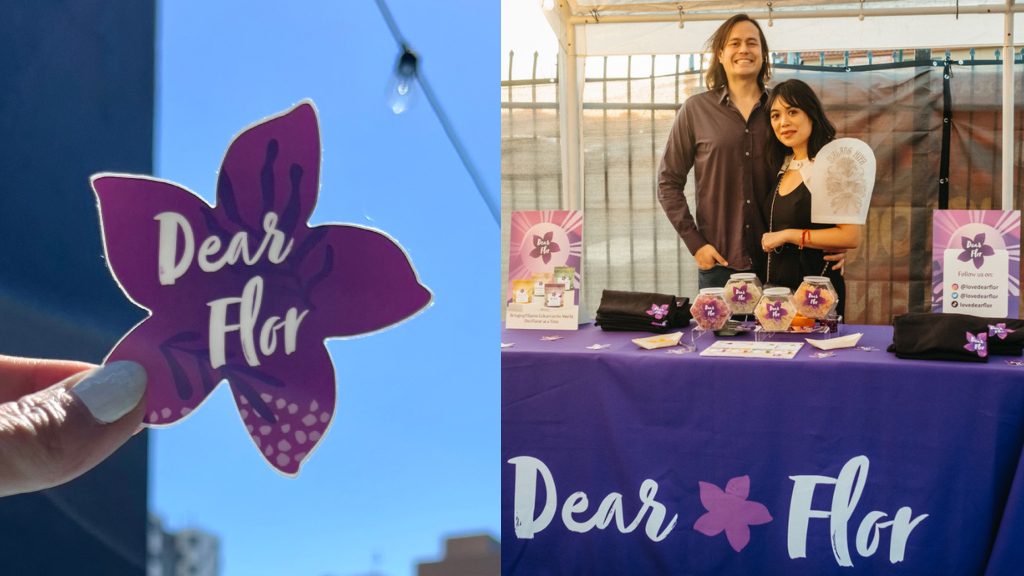The Asian American community may not be known for progressive views on casual marijuana use, but that didn’t stop Lisa Angulo Reid from starting her marijuana gummy company in 2023.
Dear Flor gummies, which are entirely vegan and have real Filipino flavors like ube (purple yam), calamansi (lime) and buko (coconut) pandan — have been extremely popular. About 85% of their products sold out in less than three weeks after being introduced in three MedMen stores in California last October.
Reid felt an urgent need to preserve Filipino cultural ownership in light of the commercialization of ingredients like ube in the U.S. With over 20 years of experience in the advertising industry, she observed that Google searches for Filipino food rose by 525%, while searches for the specific ingredient ube grew by 300% in the U.S. from 2016 to 2021.
The essential Filipino ingredient
Ube is native to the Philippines. With a mildly sweet flavor and a starchy texture, it is a popular ingredient in Filipino desserts and snacks. The essential ingredient has been cultivated in the Philippines for centuries, representing Filipino culinary heritage. It is generally boiled and mashed to make a dessert called ube halaya. Initially, fresh carabao (water buffalo) milk was originally used in the dessert, but the arrival of Americans in 1898 made evaporated and condensed milk more common, making its preparation more accessible.
The evolution of ube reflects the historical influences of Spanish and American occupations in the Philippines. The use of ube halaya in ensaymada, a sweet pastry, originated during the Spanish colonization. However, like other Filipino dishes such as adobo, ube has evolved over time, incorporating various influences from different regions to create distinct Filipino flavors.
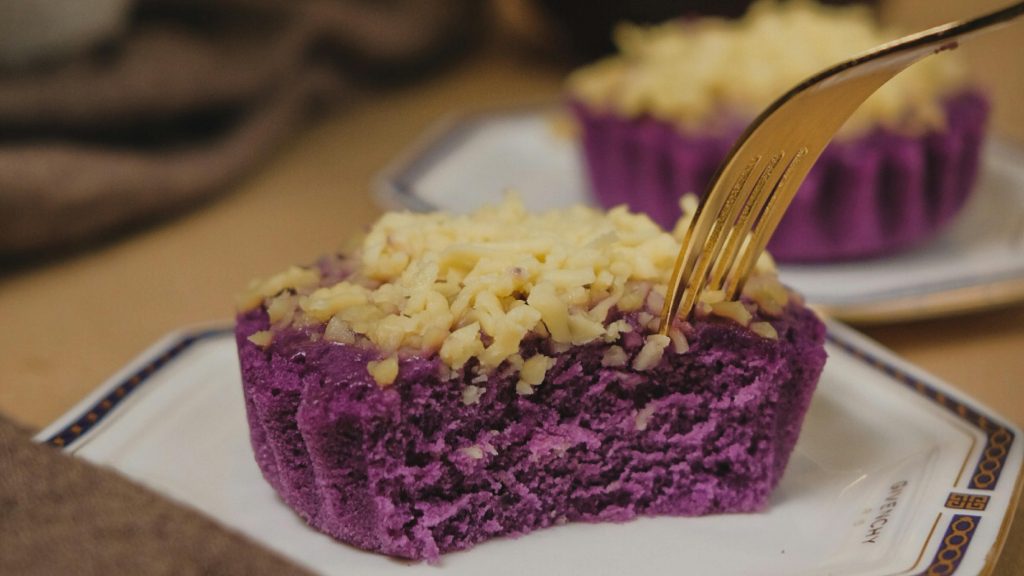
In recent years, ube has gained popularity beyond Southeast Asia and can now be found in various parts of the world, especially in areas with a significant Filipino population or those with a growing interest in international cuisine. Its popularity has surged in the U.S. due to its vivid purple color. It has quickly become mainstream, being featured prominently in bubble tea shops, pastries and restaurant menus. It has become so common that its origins have been forgotten due to social media frenzy.
“I do believe that as Filipinos we feel some ownership over these ingredients because they’re such a part of our cuisine,” Reid tells NextShark. “When I saw that stat, I was saddened by it. Nowadays, people selectively swap out real ube for taro, purple sweet potato or artificial flavoring. Consumers just assume it’s ube and they don’t realize that ube is Filipino. If we Asians don’t understand that these are our ingredients, then how are we going to make non-Asians understand that distinction?”
Reclaiming cultural identity
Reid became impassioned about reclaiming the narrative. Witnessing the potential loss of cultural identity to mainstream markets, her frustration ignited a spark of innovation. Determined to create a product that not only celebrated her Filipino heritage but also challenged societal norms within the AAPI community, she and her husband, Brian Reid, started their very first startup in 2022. With a vision to introduce Filipino flavors into the cannabis market, the Reids sought to disrupt stereotypes and carve out a unique niche.
“Marijuana is something that people enjoy together, and Filipinos naturally like being together,” she explains. “When you look at the groups of people who are interested in Filipino food or culture, and the people who are interested in marijuana, there’s a really interesting overlap, especially in places like California. It seemed like a new and exciting area for us to investigate. We believed that cannabis gummies would be a great way to grab people's attention in a fresh manner.”
Using her background in advertising and her own experiences, she incorporated the essence of Filipino culture into every aspect of Dear Flor’s brand identity, from its name to its product offerings.
“Flor,” a fairly common name for women in the Philippines, honors her family’s heritage and the cherished memories of her mother’s older sister, Ate Floring. Through each letter written to her beloved aunt, Reid’s mother shared personal details of their lives, bringing together family connection and nostalgia. Choosing “Dear Flor” as the name of the company signifies a heartfelt greeting and an invitation to partake in the warmth and familiarity of the culture.
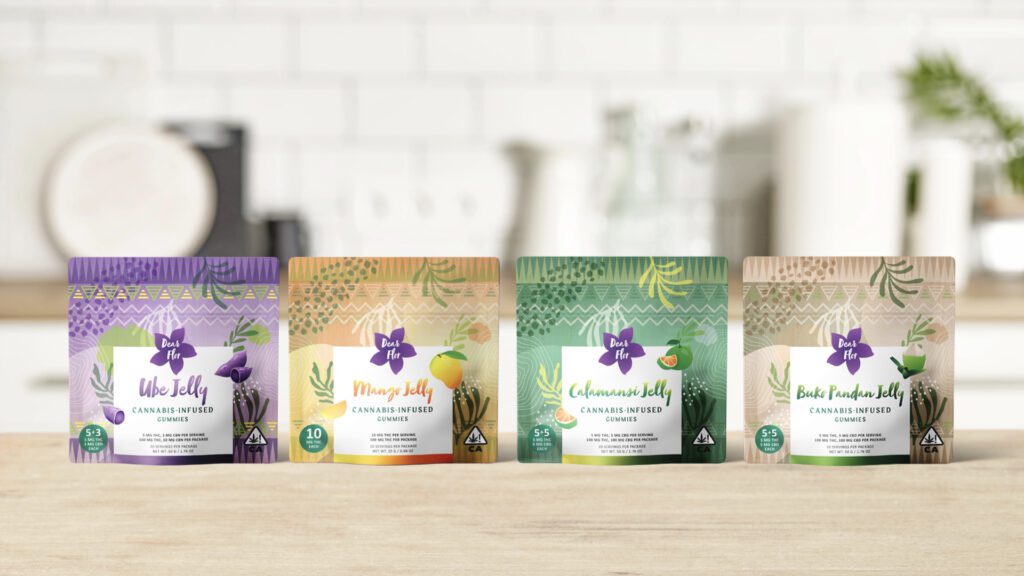
According to Reid, California, with the largest Filipino population in the U.S., was the obvious choice for launching their brand. The state’s well-established and highly competitive cannabis market offers an opportunity to establish and thrive, and achieving success in the state will provide a strong foundation for expanding into other markets.
But before the Reids launched their product, they conducted a series of sampling events last year. One was held at Kapwa Gardens in San Francisco during their April 20 event, a date that has become known as the official stoner holiday, when marijuana cannabis enthusiasts celebrate their love of marijuana.
“The response from Filipinos and non-Filipinos was truly a great success. They loved the ube. They loved the calamansi. They were asking, 'When are you going to sell this?' and I said, 'We're trying to get it to market, so please be patient,'” Reid remembers.
This year, Dear Flor was invited back to officially sell their products at the 4/20 Baked! event.
“I had never seen Filipino-flavored cannabis gummies until learning about Dear Flor,” Marissa Macayan, the general manager of Kapwa Gardens, tells NextShark. “Dear Flor is promoting Filipino flavors in a space that has become overrun by white cis-males. To encounter a Filipino brand who’s emerging in this scene is refreshing and inspiring… Something I feel like I could enjoy with friends for a little trip with flavors from the Motherland.”
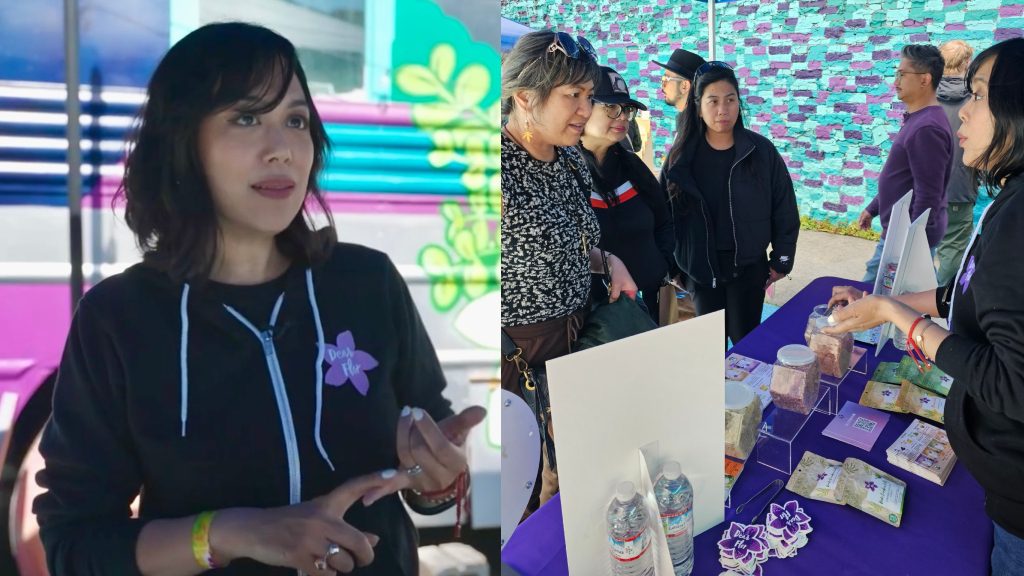
Macayan, who collaborates with BIPOC creatives to uplift marginalized communities, believes women like Reid are leading conversations on re-indigenizing plant medicine and promoting self-care. Although the idea of using marijuana is often associated with its mind-altering effects, marijuana contains various chemical compounds called cannabinoids, each with unique effects on the body and mind. Two of the most well-known cannabinoids are THC (tetrahydrocannabinol) and CBD (cannabidiol). Unlike THC, CBD does not cause mind-altering effects and is known for its potential therapeutic benefits, including reducing anxiety, managing pain, and anti-inflammatory properties.
Changing the way people see and think about things in the Filipino community
Reid’s 76-year-old mother, Editha Malabanan Angulo, initially had concerns about her daughter selling weed, but she later became supportive of the business.
“I used to be a nurse, and my husband is a physician, so when our children were growing up, we were against marijuana,” Angulo explains. “But times have changed. It’s legal in some states. It’s the trend. I'm a devoted Catholic and a very conservative mother. We used to strongly oppose marijuana, but now, cannabis is everywhere.”
When Reid told her mother about the cannabis business and its connection to Filipino culture, Angulo was pleased to see her daughter's enthusiasm for sharing Filipino flavors with the world.
“We had a Filipino American gathering here in West Virginia, and she wanted to go and talk with my friends,” Angulo says. “But you know how the Filipinos are. When they hear marijuana… Oh my gosh. But my friends, they really love it. With our age — senior citizens — our problem is getting good sleep or we have back problems.”
Even though she was hesitant at first, Angulo tried the ube-flavored gummy and discovered that it helped her sleep better without causing a “high.” She now uses it occasionally to address certain issues and has experienced positive results without feeling groggy the next day. sleep “Sleep is an interesting gateway into cannabis,” Reid says. “Especially now that people are understanding that these products are safe and they’ve been tested, it takes down the barrier for them.”
via Lisa Reid
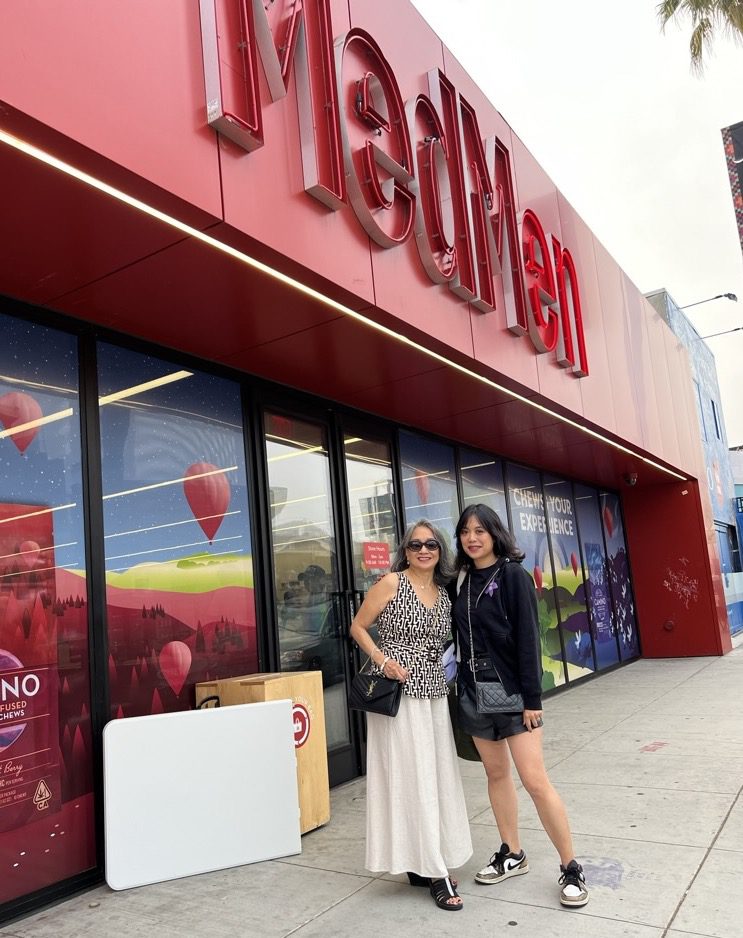
The modern cannabis consumer is quite different from those in the past, with many looking for specific results like better sleep, pain relief, or overall wellness, rather than just wanting to get high. This change in consumer preferences has made dosed edibles more attractive to a wider range of people. While some products are still made for fun use, like Dear Flor’s -flavored gummies, there's a growing demand for cannabis products designed for various needs and preferences.
The shifting profile of cannabis buyers is leading to increased interest and acceptance within communities, with older generations becoming more willing to try cannabis products and talk about their experiences with others. This cultural change reflects a larger trend toward reducing the stigma surrounding cannabis. While some old taboos remain, Reid says they encounter fewer negative reactions. And when they do, they try to educate skeptics about the safety and advantages of cannabis products. mangoHitting financial turmoil with MedMen
Reid's aim to change people's views about cannabis and spread Filipino flavors is facing an unexpected business challenge. MedMen, a well-known cannabis company, has reportedly made nearly $50,000 in retail revenue from mostly unpaid inventory. Despite the initial success and expansion to more MedMen stores, Reid says she hasn't received her share of the profit. She claims to have only received one payment from the dispensary, with outstanding payments of over $18,000 via distributors.
Reid’s effort to get back her money from the seller is a common problem in the cannabis industry. Many dispensaries, big and small, delay payments, extending terms from net 30 to net 60 or even net 90, or worse, fail to pay at all. The difficult cycle of not getting paid in the cannabis industry, especially for independent brands owned by minorities, makes it hard for entrepreneurs to succeed and make money. According to Reid, independent brands do not have the size to survive a company like MedMen.
Lately, MedMen has faced a lot of legal and financial difficulties. The multi-state company, known for its high-end dispensaries, has
faced scrutiny for its management practices, legal disputes and corporate governance concerns. On April 26, it
filed for bankruptcy in faced with debts totaling about $411 million. Its American subsidiary also went into receivership for the dissolution and selling off of assets. The decision came after evaluating the company’s financial status, its inability to meet obligations, and expected actions from secured creditors. Despite efforts to reduce costs and attract investors, MedMen saw falling revenue and a shrinking stock price. filed via Christine Cueto Canada Even though Reid is dealing with business challenges, she stays positive about expanding into new markets, forming partnerships with new dispensaries and staying involved in the industry’s potential for growth and innovation. Dear Flor is currently only available in California stores, such as
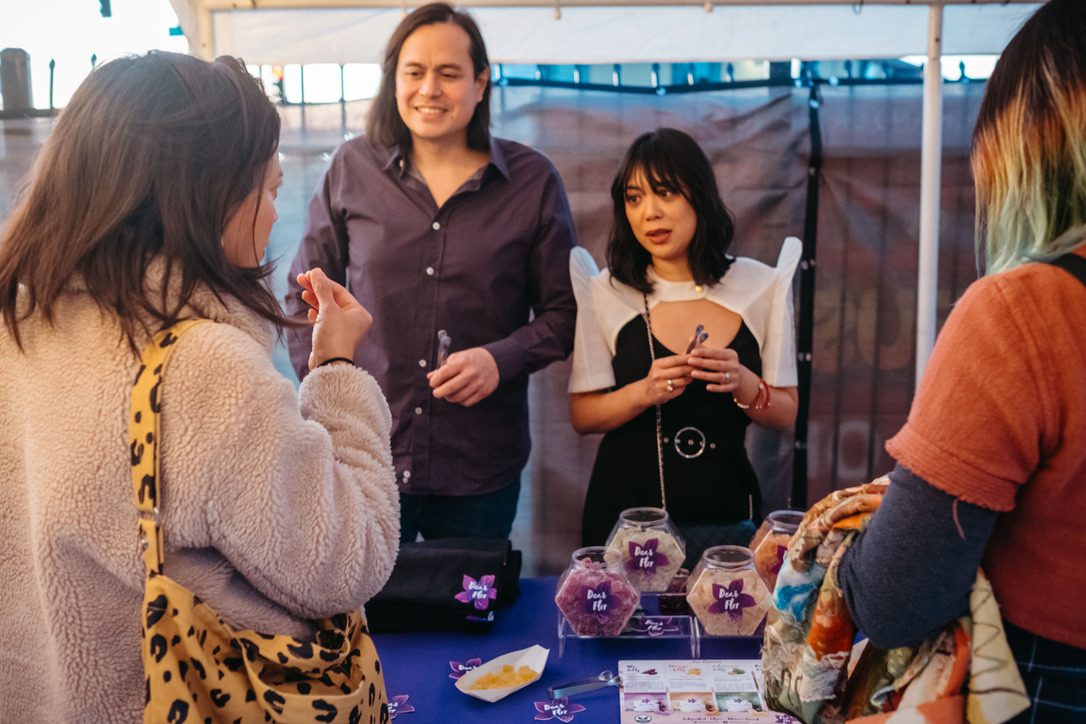
Project Cannabis North Hollywood Barbary Coast, . But as her desire to preserve Filipino cultural ownership extends globally, Reid is planning to widen the brand’s reach for expansion into other legal states. and “Our mission is to bring Filipino culture to the world, one flavor at a time,” Reid says. “We want people to see our flavors and know they are Filipino. So it’s not surprising our dream is to get Dear Flor to as many people as we can. We want to reach people who love Filipino culture. We want to reach all people out there that have a Filipino friend — and everyone out there has a Filipino friend. If you don’t, you should get one!”The Asian American community may not be known for the most progressive views on recreational marijuana, but that didn’t stop Lisa Angulo Reid from launching her cannabis gummy business in 2023.
Dear Flor gummies, which are 100% vegan and infused with authentic Filipino flavors — such as ube (purple yam), calamansi (lime) and buko (coconut) pandan — have proven to be wildly popular. Around 85% of their products sold out in less than three weeks after their launch in three MedMen stores in California last October.
“Our mission is to bring Filipino culture to the world, one flavor at a time,” Reid says. “We want people to see our flavors and know they are Filipino. So it’s not surprising our dream is to get Dear Flor to as many people as we can. We want to reach people who love Filipino culture. We want to reach all people out there that have a Filipino friend — and everyone out there has a Filipino friend. If you don’t, you should get one!”


